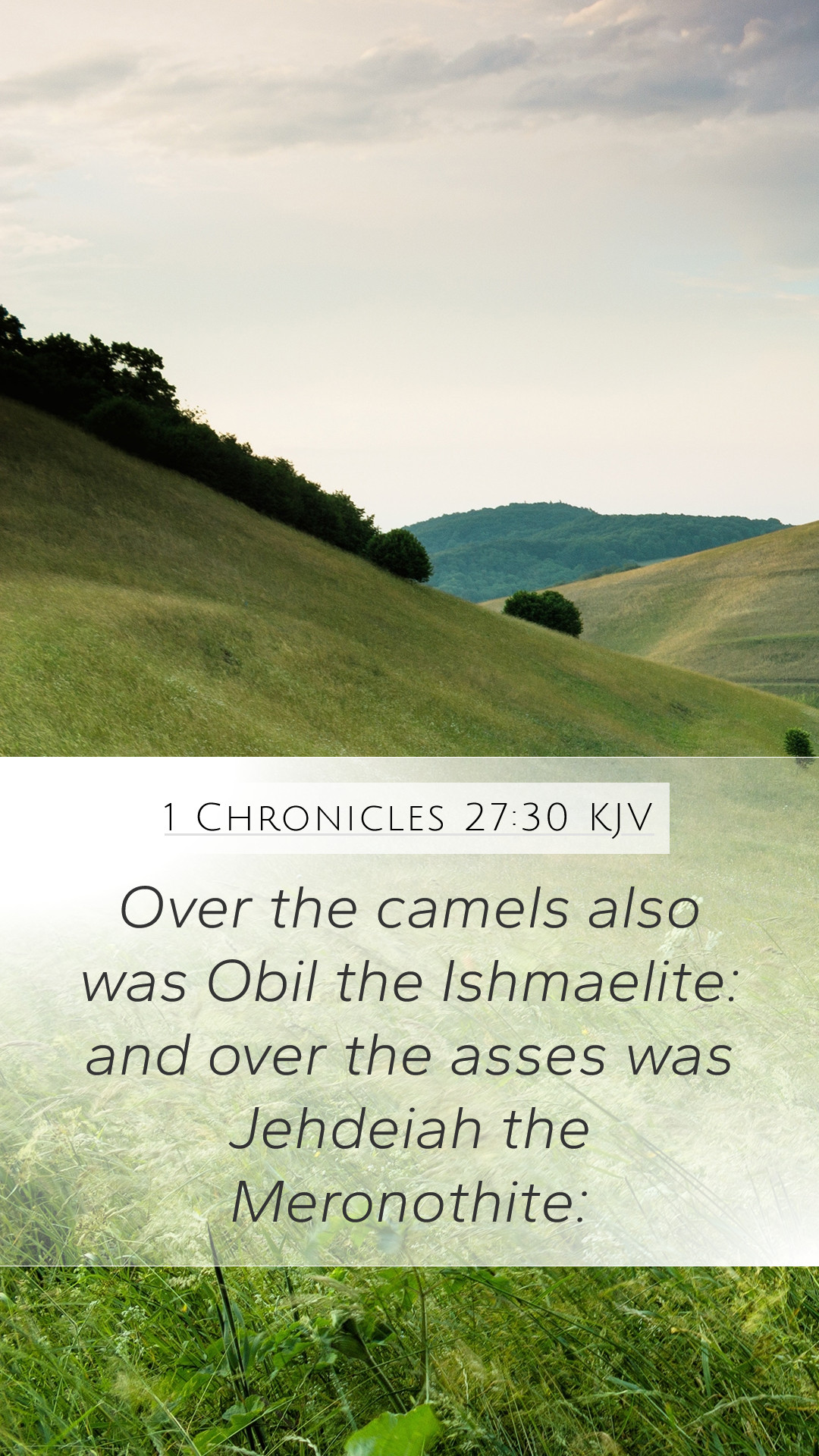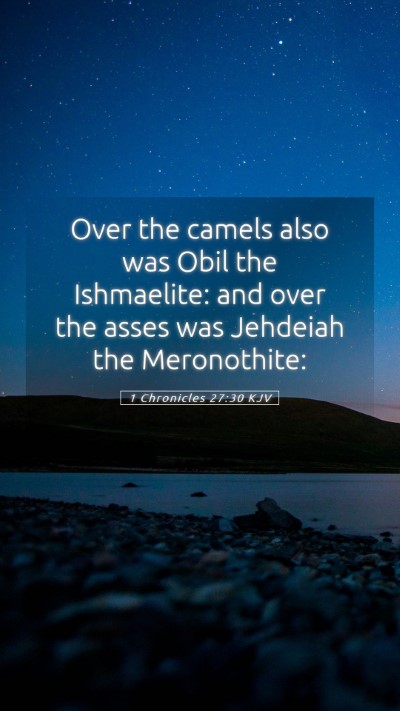Understanding 1 Chronicles 27:30: A Comprehensive Bible Verse Commentary
The verse 1 Chronicles 27:30 states, "Over the herds that fed in Sharon was Shitrai the Sharonite: over the herds that fed in the valleys was Shaphat the son of Adlai." This verse provides a glimpse into the administration of King David's kingdom, particularly regarding the management of resources and personnel.
Bible Verse Meanings and Interpretations
This scripture portrays the diligence and organization that was required in David's reign. Here are some interpretations and meanings based on public domain commentaries:
-
Matthew Henry's Commentary:
Henry emphasizes that David’s reign was marked by wisdom in governance. He notes that appointing officials, such as Shitrai and Shaphat, signifies the importance of delegating responsibilities.
-
Albert Barnes' Notes:
Barnes points out the geographical significance of Sharon and the valleys, highlighting the prosperity of the land and the importance of stewardship over livestock, which was a vital part of the economy.
-
Adam Clarke's Commentary:
Clarke reflects on the names mentioned, suggesting that these individuals were likely renowned for their specific roles within the kingdom. Their titles denote respect and administrative capability within David's court.
The Context of 1 Chronicles
This verse is set within the broader context of 1 Chronicles, which outlines the organization of David's kingdom. It serves as a record not just of military and civic leaders but also of the economic management of the nation.
Key Themes and Lessons
- Organization: The careful structuring of leadership shows the necessity for order in governance.
- Accountability: Each of these leaders was responsible for specific resources, indicating a system of accountability within the kingdom.
- Resource Management: Effective management of livestock and agriculture was crucial for the sustenance of the nation.
Scripture Analysis
This section delves deeper into the significance of the verse in its historical context. Shitrai and Shaphat symbolize the trusted agents of the King, reflecting the need for trustworthy individuals in management positions.
The Importance of Livestock in Ancient Israel
Livestock, particularly in regions like Sharon, were vital for trade, sustenance, and ceremonial purposes. Managing these resources effectively was crucial to prosperity.
Biblical Exegesis and Connection to Other Scriptures
1 Chronicles 27:30 can be connected to various other scriptures that speak about leadership, responsibility, and resource management:
- 1 Samuel 16:11: The selection of David as king illustrates God's choice of leadership.
- 2 Samuel 8:14: Highlights David’s military successes and the peace he brought to Israel.
- Psalms 78:70-72: Discusses God's choosing of David, his role as a shepherd of Israel, and his leadership qualities.
Applications of the Verse in Daily Life
For modern readers seeking understanding of this verse, there are several applications:
- Leadership: Emulate David's organizational skills in personal or professional settings.
- Stewardship: Consider how one manages resources in daily life, reflecting on responsibilities toward family and community.
- Trustworthiness: Cultivate trust in relationships and leadership roles, ensuring accountability and diligence.
Concluding Thoughts
1 Chronicles 27:30 provides a snapshot of the structured and responsible management that characterized King David's reign. By studying this verse, we gain insights into effective leadership, resource management, and the significance of accountability.
Engaging with Bible Study Resources
For those eager to explore more about this and other Bible verses, engaging with resources such as:
- Bible Study Guides: Helpful in understanding context.
- Online Bible Study Tools: Facilitate deeper scripture analysis.
- Bible Study Courses: Enrich knowledge about biblical leadership and governance.


